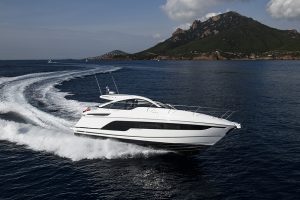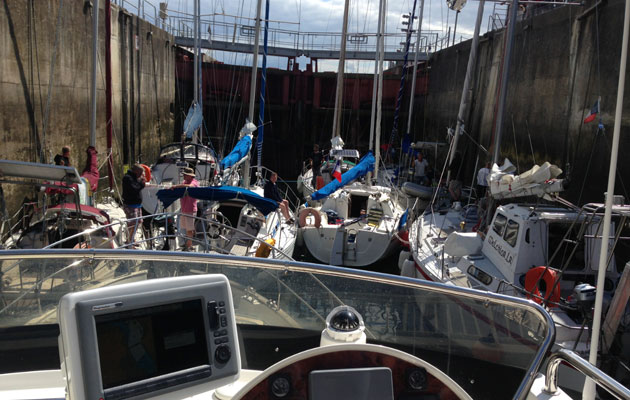Finding the right boat insurance
When you come to buy boat insurance you need to shop around, not just for the cheapest premiums but for the right kind of cover for your boat and your type of boating
Finding boat insurance against loss, damage or theft is not compulsory, but it is common sense.
When you pay your annual premiums you are buying peace of mind; if you have to face a big repair bill or replace some stolen equipment you won’t be out of pocket, and if you suffer a total loss you can start all over again. If, that is, your nerves have survived the experience.
Third-party cover is one element of insurance that is compulsory in many places – on most inland waterways and in many marinas and ports, and a legal requirement in most other countries.
Just as there are companies that specialise in marine finance, so there are those that are dedicated to insuring boats.
But there are a lot more of them, and there’s greater variation in the cost of insurance and in the degree of cover that different policies provide.
The insurers
In shopping around for the best deal, approach only those firms who specialise in marine insurance.
It’s a strangely diverse market; you will come across insurance brokers, insurance company agents, insurance consultants and direct-selling insurance companies.
And behind them are the long-stops of the business – the underwriters who actually carry the insurance ‘risk’, including such well-known names as Lloyd’s, AXA and Royal & Sun Alliance.
Some insurance is placed with underwriters from other European countries, notably Germany.
Premiums
For sportsboats and small sportscruisers, expect to pay between 1% and 2% of their value in annual insurance premiums.
Relatively speaking this figure falls to around 0.5% when you get up to a 40ft (12m) flybridge cruiser.
In deciding the exact premiums, insurers consider the following factors:
Boat’s age
Older boats tend to incur higher premiums. Insuring a vintage wooden boat for more than third-party cover can be very expensive.
Speed
High performance attracts high premiums. Different insurers set different speeds above which premiums rise.
Location
You should pay less for a marina-based boat than one kept on a swinging mooring, and maybe less if you don’t use it in the winter.
Cruising limits
Your policy will specify the limits to which you can cruise; in general you will pay more the further afield and the further offshore you want to cruise.
Other activities
If you want to go waterskiing or ‘tubing’ (towing sausages, donuts and such like) you may have to pay more – that is, if the insurer allows it. Likewise if you want to charter your boat.
Experience and qualifications
If you have been boating for a long time (without accidents) and are an RYA Day Skipper (or better), you should get a discount.
Excess
Excess, the amount of any claim (except for total loss) you pay yourself, varies considerably.
For fast boats, usually those designed to do more than 17 knots and especially sportboats and sportscruisers, many insurers will demand a considerably greater excess on your external sterngear: shafts, brackets, outdrive legs, propellers and the lower units of outboard engines.
Many insurers have a marina-benefits clause, by which excess does not apply in case of damage inflicted in a marina pontoon berth or ashore in a marina.
No-claims bonuses
Most firms offer no-claims bonuses (at least on boats under £250,000 in value), usually up to 20-25% after four or five years, but one or two insurers offer up to 40% and even 60%.
However, when you take out an insurance policy a no-claims bonus may well be built into the first year’s premium if you have had a history of insuring a boat without making any claims.
Comprehensive cover
When you take out insurance on your boat make absolutely sure that it covers everywhere you want to take it and everything you want to do in it.
Cruising range
Check that you have appropriate geographical coverage, such as inland waters only, UK coastal and inland waters or Northern European waters, which is usually defined as Brest (or La Rochelle) to the Elbe.
To go further afield you must extend the area, usually for a small increase in premium.
That may include going onto the continental waterways.
River boaters who want to go down onto the tidal reaches should find out whether they need an extension; on the Thames, for example, river-only use is generally considered to include the tideway through Central London to the Thames Barrier.
Waterskiing & tubing
Sportsboat and small sportscruiscrowners who want to tow skiers and go tubing should be careful to check whether they are covered while doing so. Some insurers won’t countenance such activities.
Trailing
Trailable boats will be covered whilst in transit, but third-party liability must be included in the vehicle’s insurance.
Winter boating
If you want to keep your boat in commission outside the normal summer season you may also need to have your policy amended, especially if you don’t keep it in a marina.
Third-party insurance
Most policies have third-party coverage for up to £2 million, but one or two offer up to £3 million as standard. Others might raise the limit for an increasc in the premium.
Exclusions and warranties
Be sure to read all the small print – the exclusions and warranties – before you sign up for an insurance policy.
General exclusions
These always include war and terrorism, the effects of wear and tear, and theft through anything but forcible entry.
‘Speedboat clauses’
Boats that can do 17 knots are subject to further exclusions.
These can include damage to sterngear and fire or explosion if the engine space does not have an automatic or remote extinguishing system.
You will probably not be insured against loss or damage during racing or speed trials, or if there is no ‘competent person’ in charge.
You may not be covered if you have the boat unattended in an exposed anchorage, or there may be a time limit, such as three hours, for doing so.
It may be well be possible to have some exclusions deleted or modified, including those about sterngear and anchoring.
Warranties
These will include something about your duty of care to maintain your boat properly and to take reasonable precautions to protect it from theft or damage.
Originally published in Your Motor Boat 2004










